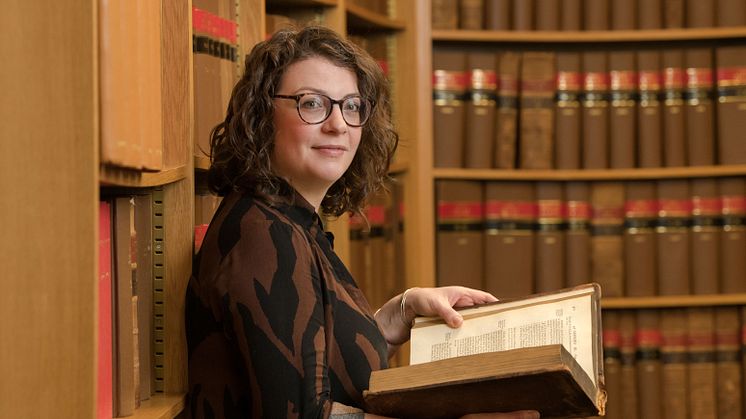Press release -
EXPERT COMMENT: How being furloughed affected people’s sense of time and relationship with work
In this article originally written for The Conversation*, Victoria J E Jones, Assistant Professor of Arts, Design and Social Science at Northumbria University, discusses the impact of the furlough scheme.
Between March 2020 and September 2021, millions of workers furloughed under the UK government’s Coronavirus Job Retention Scheme lived what for many of us is a dream: being paid not to work.
Through interviews, I’ve researchedthe impact of this time on 35 people who were furloughed under the scheme. I found that for some, furlough created opportunities for reflection and growth, but for most of my interviewees it was a time of uncertainty and disorientation.
Social distancing requirements during the pandemic meant that non-essential businesses were paused or partially closed by the UK government. Under the government scheme, employers could apply for financial grants to furlough workers and pay them 80% of their wage to stay at home.
The higher a worker’s educational qualifications, the less likely they were to be furloughed. Workers from the hospitality and entertainment sectors were most likely to be furloughed, with young workers and older workers particularly affected. More women were furloughed at the start of the scheme than men, though at the end of the scheme more men were affected. And younger workers, as well as minority ethnic workers, were disproportionately likely to be affected by post-furlough job loss.
The gift of time
A few of my interviewees found furlough to be a relaxing break from the stressors of work, or a time to try new hobbies. One woman, an agency administrator, used the time to fulfil a long-held ambition to restore vintage airplanes. An airplane dispatcher researched climate change and became an activist. Another, a café manager, used furlough to learn creative writing and dance through online classes.
But for the majority of those I spoke to, furlough was a disorientating time period. Their experiences show how many people’s everyday rhythms and sense of self are closely tied to their work. Several of the workers I interviewed felt the absence of work acutely.
Abigail*, a fine dining chef, said that she found her usual catering work “creative” and “really satisfying”, especially when people said they enjoyed her food. In furlough she found herself without purpose and spent her days tiptoeing around her partner who was working from home, mindful not to disturb him and his productivity. She couldn’t fill her own time as she felt guilty about being paid to do nothing.
Lydia, a retail worker, found herself unable to maintain her normal circadian rhythms and became “nocturnal by accident”. At one point, she stayed up for 22 hours in order to exhaust herself and reboot her sleep patterns. Lydia’s circadian rhythms only went back to normal when she and her partner, also furloughed, returned to work.
Joanna, a charity worker, realised that she would feel destabilised and “stagnate” by not working during furlough. Joanna set herself up with volunteer work in the charity sector, made a home office and worked from nine to five, with tea breaks and lunch breaks, “to have that element of still working” and to make her days feel like normal working days.
Others had to find alternative income streams when the 80% furlough salary did not meet their living costs. Lee, an events marketeer, learned how to trade currencies through online courses, something completely new to him. Anxious to make ends meet for himself and his family of four, Lee treated the newfound activity of trading as a full-time job.
Disorientation of furlough
How Abigail, Joanna, Lydia and Lee reacted to the absence of their usual work lives exposes how ingrained the rhythms of work can be. When those rhythms were removed by furlough, their lives became disorientating and uncertain in different ways.
My study also revealed that this disorientation continued when people went back to work. Carol, a casino worker, discussed feeling anxious that she had fallen too far out of the rhythms of work while furloughed. Her fears were justified, as after 40 years doing her job, she found timing tasks difficult on her return to work.
Others furloughed, were worried that they would not be able to keep up with the social aspects of their workplace. Jenny, a stage manager fretted that her banter wasn’t “at the top of my game” and she would be embarrassed by her colleagues by being too slow at matching retorts.
Returning to work also involved catching up with backlogs of tasks that had built up during furlough. Alexandra, an optometrist, discussed how her newly heavy workload made her job feel more stressful than before furlough.
Pausing from work
This pandemic-induced pause revealed how integral work is in some people’s lives. This revelation led some workers in the study to reevaluate their relationship with work.
Caroline, a charity worker, began to think that she had given too much time and effort to her employer. On her return to work, like many other people, she started “quiet quitting” – or putting less effort in. For Carlos, a food scientist, furlough made him realise that his employer did not fulfil his expectations, so he resigned and found another job.
Like many in the study, Alison, who used furlough to learn to dance and write creatively, discussed how the time helped her revise her attitude to work, saying: “Work used to be my life… I realised life was not work”.
*All study participants have been anonymised.
*This article was originally published by The Conversation. Please see here for republishing guidelines.
Topics
Categories
UNIVERSITY OF THE YEAR 2022 (Times Higher Education Awards)
Northumbria is a research-intensive university that unlocks potential for all, changing lives regionally, nationally and internationally.
Two thirds of Northumbria's undergraduate students come from the North East region and go into employment in the region when they graduate, demonstrating Northumbria's significant contribution to social mobility and levelling up in the North East of England.
Find out more about us at www.northumbria.ac.uk
--- Please contact media.communications@northumbria.ac.uk with any media enquiries or interview requests ---










